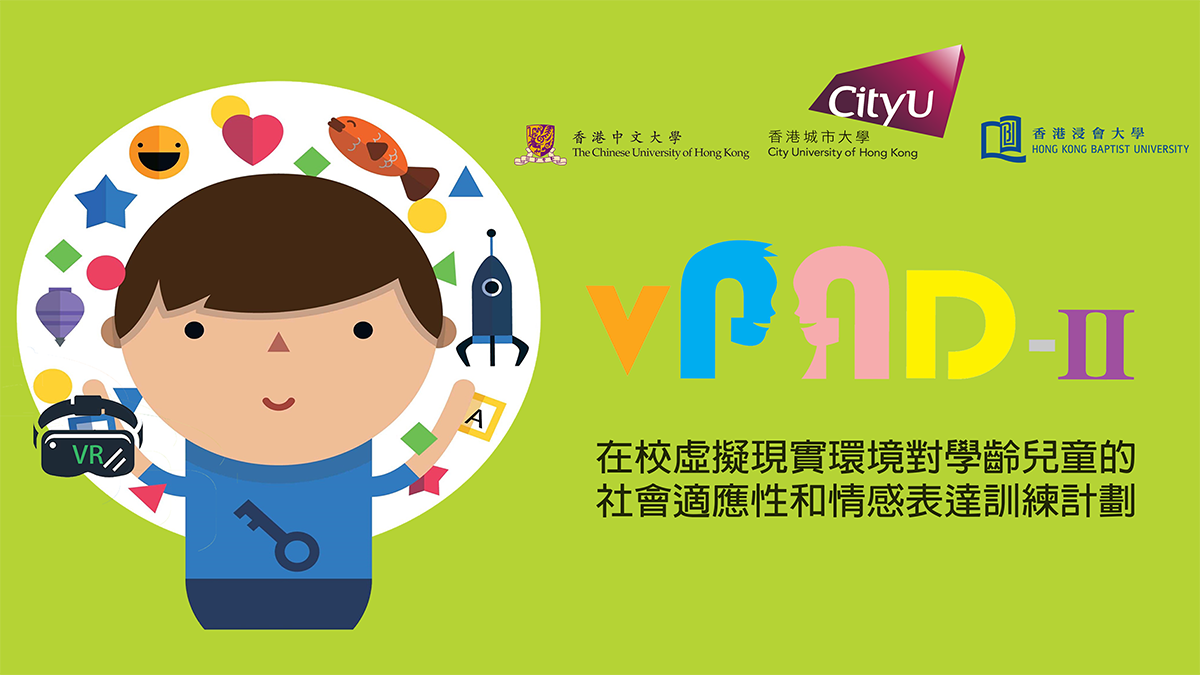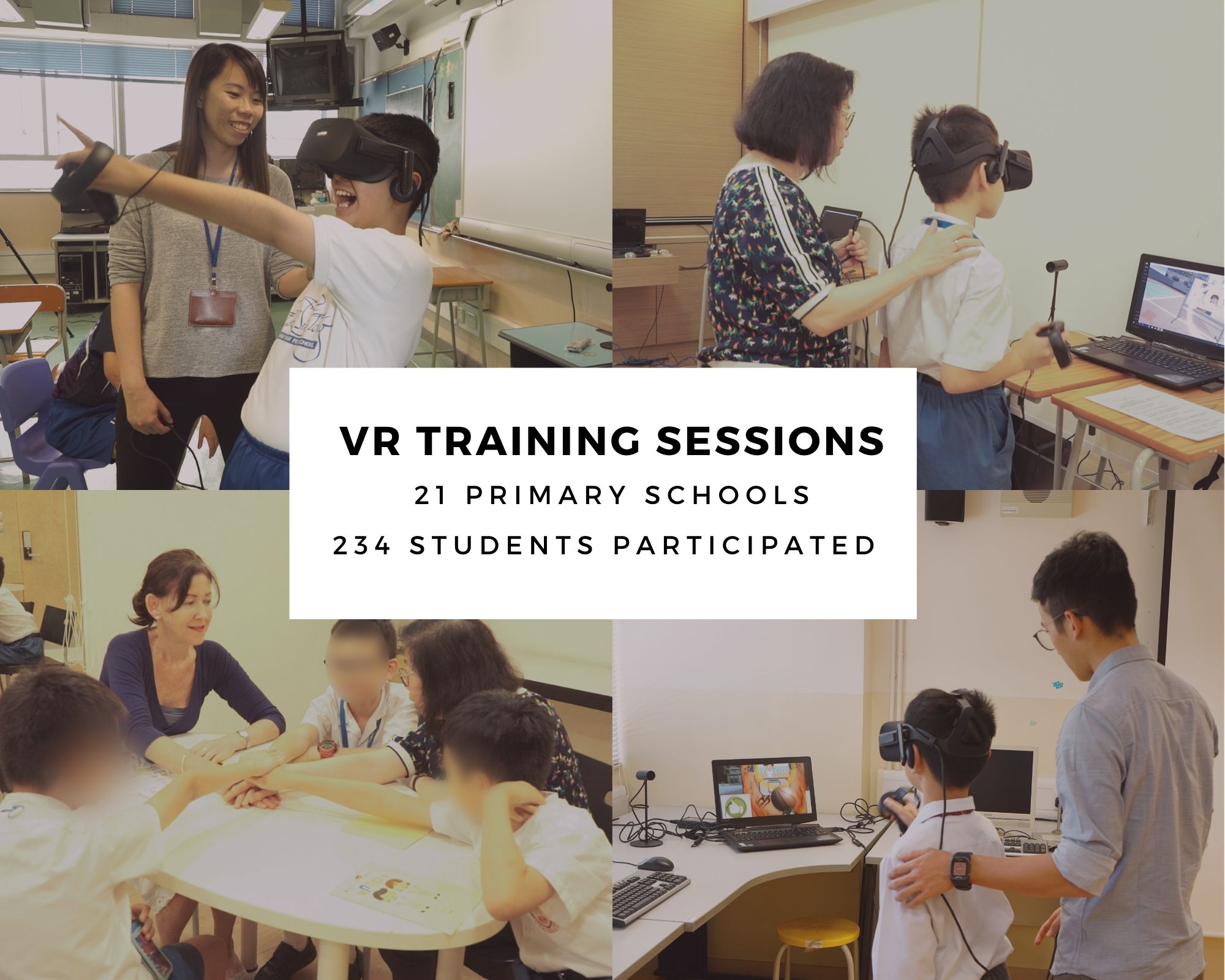
vPAD-II project aims to apply immersive virtual reality technology to create an innovative training program for students with autism spectrum disorder (ASD) with a focus on social adaptive and emotional regulation. The program is designed and conducted by an inter-disciplinary and inter-institutional team of educational and developmental psychologists, behavioral pediatrician and computer scientist to maximize the effectiveness of the training targeting at students with ASD. The use of virtual reality technology enables the creation of a realistic, immersive, safe and controllable teaching environment for the students.
The Centre for Innovative Applications of Internet and Multimedia Technologies (AIMtech Centre) applies multimedia information processing, visualization and internet computing in various research areas such as creative arts, education and psychotherapy. The experience and innovative achievements set a good foundation for vPAD-II. The innovative research projects conducted by the centre include Smart Ambience Therapy (SAT) – integrating art and drama therapy to virtual reality for abused children, Smart Ambience for Affective Learning (SAMAL) – using virtual reality to create lessons with immersive interaction and Interactive Sensory Programme for Affective Learning (InSPAL) – using virtual reality learning environment for severely intellectually disabled (SID) students. Some of the projects are funded by Quality Education Fund, HKSAR Government.
vPAD-II was built upon the positive outcomes of vPAD program, to benefit more students with Autism Spectrum Disorder (ASD) in mainstream schools. vPAD-II aims to facilitate students with ASD to acquire skills for emotion regulations, including self-awareness, recognition, control and expressions of emotions, to develop and strengthen ASD students’ generic skills on complying with social rules in common social situations, and generalizing adopted social skills to new social situations, also developing a psycho-educational protocol on training social adaptive and emotional control for children with ASD.
A distinctive feature of vPAD-II compared to vPAD is the use of the latest Head Mount Display unit for the delivery of immersive learning experience, rather than using the custom-built CAVE system at City University of Hong Kong. This enables the project team to conduct the immersive training programme on-site at the participating schools. Furthermore, on school-site trainings and workshops were provided to professional staff at the participated mainstream schools to increase the sustainability of the programme.




This project is funded by Quality Education Fund
